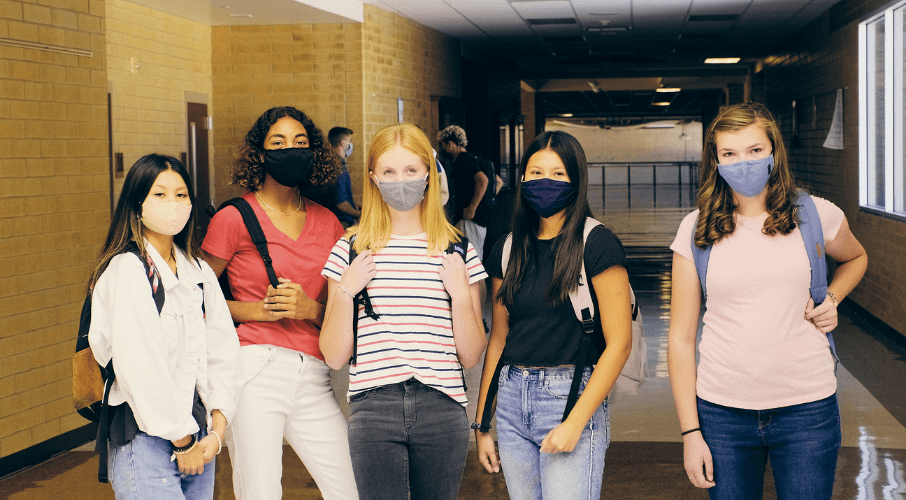 Today’s youth may, following on the example of the 2008-2009 recession, experience uneven engagement with work and, consequently, with savings and debt repayment. Young people who graduate into a recession often take decades to recover, writes Ken Coates.
Today’s youth may, following on the example of the 2008-2009 recession, experience uneven engagement with work and, consequently, with savings and debt repayment. Young people who graduate into a recession often take decades to recover, writes Ken Coates.
By Ken Coates, December 15, 2020
As we contemplate the imminent end of 2020, an annus horribilis if there ever was one, spare a thought or two for Canada’s youth. Hard as this been on Canada a whole, young Canadians are paying big time for the unavoidable consequences of COVID-19.
Many Canadian young people were supposed to be having the proverbial ‘time of their lives.’ Instead, they were (supposedly) in lock down at home, subject to many restrictions, and denied the social activities that were crucial rites of passage: parties, high school and university sports, dating, and the like. Goodness knows how many social events, outings, and fun activities were cancelled by public health regulations and the wise decisions to socially isolate. No doubt many young and fresh relationships fell by the wayside.
The very young, struggling with grade school assignments at home, will effectively lose a full year of basic skills acquisition. This lost time is not easily made up, particularly for children under Grade 4. Wealthy and highly motivated parents will have found alternative instruction; the poor and marginalized are sure to follow further behind.
For students in Grade 11 and 12 preparing for graduation, failure rates have skyrocketed. Thousands of students will be held back. Many others will limp into post-secondary education. Teachers and schools are focusing on “credit rescue,” which essentially means a sharp reduction in the quality of the learning experience.
Students have generally been unimpressed with the online learning experience. The best students, in the main, are doing okay, even if the digital classrooms leave a fair bit to be desired. For weaker students, the loss of high-quality high school experiences could well linger into subsequent life and educational efforts.
For those who graduated from high school, in hastily and awkwardly completed fashion in late spring 2020, they moved in two directions: to an unwelcoming job market with soaring unemployment rates or to a post-secondary system that had made an emergency transition to online instruction. Students, teachers and institutions have tried hard in Fall 2020, but students are not warming to the online learning environment. Course failures, dropouts and the learned-distaste for advanced study will echo into 2021 and well beyond.
Graduates from college, polytechnics and universities made a last-minute transition to online learning to complete their studies and then graduated into a horrible job market. It was not all horrible, but many of the ‘default” positions – gig workers, tourist-related jobs, and any low-skilled opportunities – disappeared, particularly in the hard-hit small business sector. Unrelated changes, like the sharp decline in the oil and gas industry and global economic uncertainties in general, destroyed job opportunities for thousands of entry level workers.
If this were not bad enough, there are indications that the economic challenges and uncertain employment will linger into 2021 and beyond. The Government of Canada talks of billions of dollars in its “stimulus” package, but the track record for government-inspired and funded economic growth is far from encouraging. Today’s youth may, following on the example of the 2008-2009 recession, experience uneven engagement with work and, consequently, with savings and debt repayment. Young people who graduate into a recession often take decades to recover.
On the positive side of the ledger, the Government of Canada’s fast and generous emergency payments, particularly CERB, ensured that the young and unemployed maintained a steady income. While the money helped prevent a nation-wide panic, it appears that thousands of young people took the government funding rather than look for work. Relying on ‘easy’ government funding is hardly the best introduction to the world of employment and personal income.
This is not the end of the problems facing Canadian youth. University, college and polytechnic fees will almost certainly rise next year, even as it is harder to young people to find decent paying jobs and lucrative careers. Rapid technological change and subsequent transformation of the world of work seems like yesterday’s news but the full effects still lie ahead. If preparing for a career was challenging a few years ago, it is much more difficult now.
To top it off the governments of Canada, the provinces and territories have borrowed at historical levels, running up debts and deficits that today’s youth will be paying off their entire adulthood. Add to this list of difficulties the disruptive potential of the Trudeau government’s newly announced climate change agenda and the future prospects for Canadian young people remain uncertain at best.
Canadian youth are a diverse group, with highly motivated and exceptionally talented men and women in the same age cohort as unmotivated and low skilled individuals. But this generation has not made its mark as being a particularly resilient and self-reliant bunch. Indeed, the current generation is noted for being demanding and collectively self-assured. Their resolve and talent will be severely tested in the years ahead, but more than a few adults are less than optimistic about the road ahead.
Ken Coates is a Munk senior fellow at the Macdonald-Laurier Institute.




